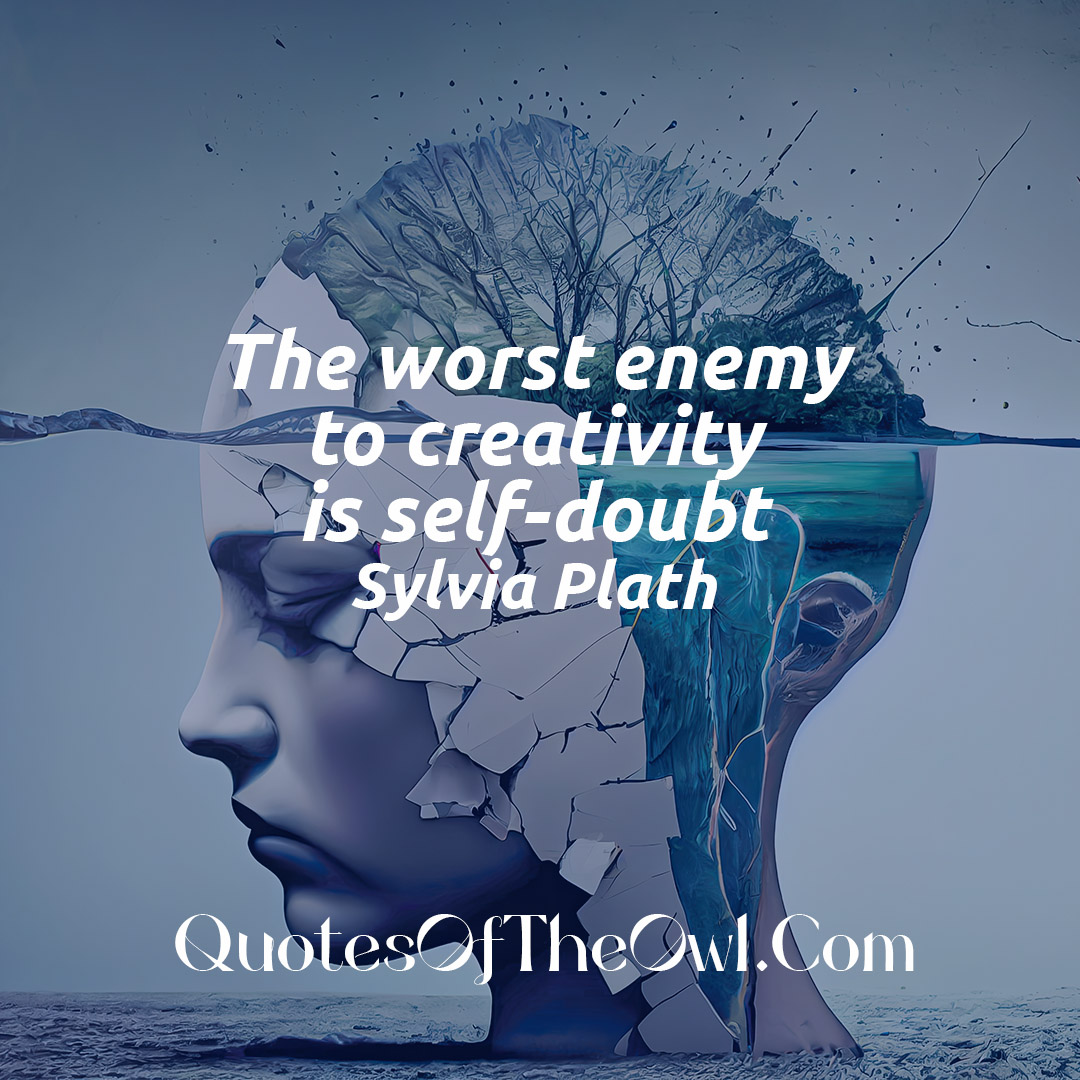What is the meaning of Sylvia Plath’s Quote: “The worst enemy to creativity is self-doubt”?
Sylvia Plath, the American poet and novelist, is known for her contributions to the literary world. She had a unique perspective on life and creativity, which is evident in her famous quote, “The worst enemy to creativity is self-doubt.” This quote has been used as a source of inspiration by many people, but what exactly does it mean? In this article, we will delve deeper into the meaning of this quote and how it can be applied to our lives.
Self-doubt and creativity
Self-doubt can have a significant impact on the creative process. When we doubt ourselves, we become more cautious and risk-averse. We may hold back from expressing our true thoughts and feelings or from taking creative risks. This can lead to a lack of originality and creativity in our work.
The negative impact of self-doubt
Self-doubt can lead to a range of negative emotions, including fear, anxiety, and depression. When we doubt ourselves, we may feel stuck or stagnant, unable to move forward with our creative work. This can be detrimental to our mental health and well-being.
Ways to overcome self-doubt
Fortunately, there are several ways to overcome self-doubt and cultivate a more positive mindset. These include:
Accepting failure
Recognizing that failure is a natural part of the creative process can help to reduce self-doubt. When we accept that not everything we create will be perfect or well-received, we can free ourselves from the pressure to be perfect and focus on the process of creating.
Taking risks
Taking creative risks can help us to push past our self-doubt and create more original and innovative work. When we challenge ourselves to try new things and step outside of our comfort zone, we can discover new ideas and ways of expressing ourselves.
Surrounding yourself with positivity
Surrounding ourselves with positive and supportive people can help to boost our confidence and reduce our self-doubt. When we are surrounded by people who believe in us and our creative abilities, we are more likely to take risks and express ourselves freely.
Setting goals and celebrating achievements
Setting goals and celebrating our achievements can help to build our confidence and reduce our self-doubt. By setting small, achievable goals and celebrating our progress along the way, we can build momentum and feel more confident in our creative abilities.
The role of confidence in creativity
Confidence plays a crucial role in the creative process. When we are confident in ourselves and our abilities, we are more likely to take risks and express ourselves freely. Confidence can help us to push past our self-doubt and create more original and innovative work.
Cultivating self-confidence
Cultivating self-confidence takes time and effort, but it is possible. Some ways to cultivate self-confidence include:
Practice
The more we practice our creative skills, the more confident we will become in our abilities. By setting aside time to create every day, we can build our skills and confidence over time.
Positive self-talk
The way we talk to ourselves can have a significant impact on our confidence levels. By replacing negative self-talk with positive affirmations, we can build our confidence and reduce our self-doubt.
Learning from mistakes
Instead of dwelling on our mistakes, we can choose to view them as opportunities for growth and learning. By embracing our mistakes and learning from them, we can become more confident in our abilities and reduce our self-doubt.
Conclusion
Sylvia Plath’s quote, “The worst enemy to creativity is self-doubt,” is a powerful reminder of the impact that self-doubt can have on the creative process. By recognizing and addressing our self-doubt, we can cultivate more confidence and create more original and innovative work.

